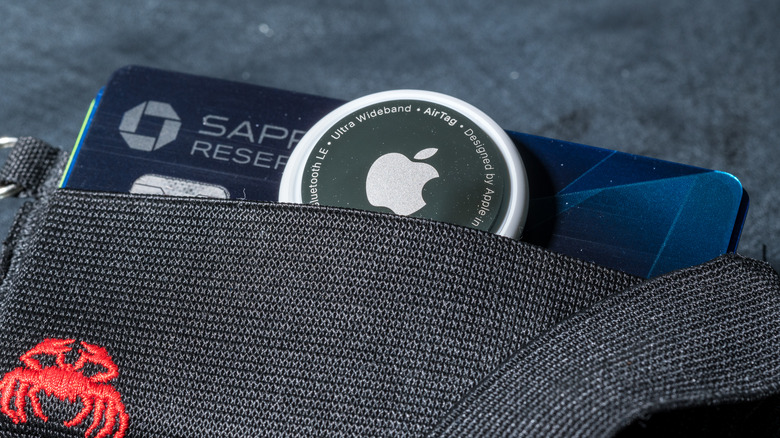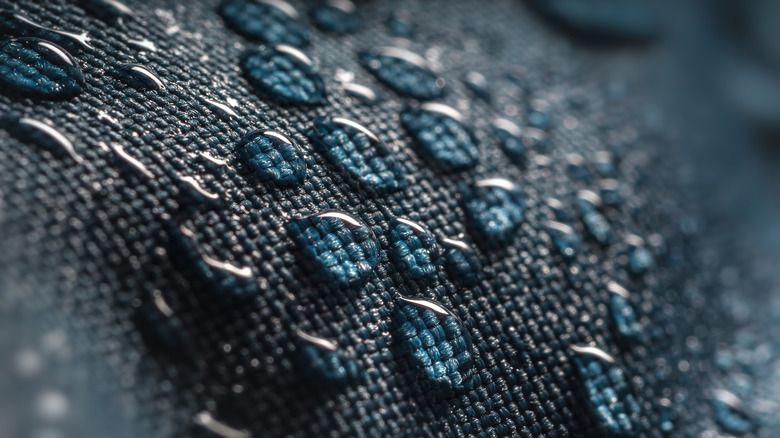Air Tags Aren't Waterproof, But They Are Water Resistant. Here's What That Means
AirTags are the clever little device that, as Apple quips, helps you "lose your knack for losing things." For a mere $29 a pop (or $99 for a set of four), you can use these ingenious little pucks to keep track of just about anything. For those prone to losing or misplacing things or are afraid something will get stolen, these little trackers are indeed helpful.
Should the item bearing the tag get lost, just open up the Find My app, and you have the assistance of a global legion of iPhones ready and able to locate that missing item's whereabouts. Sadly, it's also been used to nefariously track people as well, which is unfortunate.
AirTags can be used in conjunction with Augmented Reality (AR), the battery lasts over a year, and it's water and dust resistant. The key word here is "resistant," which does not mean "proof." According to Apple, after being tested in a lab under ideal conditions, the AirTags are resistant to "splash, water, and dust" and gave it an IP certification of 67 under IEC standard 60529. So what does that all gibberish mean in normal terms?
Water can and will muck up your tag
"IP" stands for International Protection or, in some circles, Ingress Protection. It's a standard rating system used to describe how much protection a mechanical casing or "electrical enclosure" can provide. An item's "IP code" is made up of two numbers. The first one rates its protection against solid objects like dust, with a classification scale between zero, meaning it can't repel anything, and six, which means none can enter. The second number deals with protection against liquids and uses a scale from zero, meaning none again, to nine, which offers maximum protection.
The IP code was devised so companies could avoid using confusing marketing terms like "waterproof" or dust resistant" entirely. Alas, Apple apparently didn't get that memo. AirTags have an IP rating of 67. According to Trenton Systems, "The 6 indicates 'complete protection against dust over extended time' as well as 'protection against contact with objects greater than 1mm in diameter, such as a wire or a small tool.' The 7 indicates the system is 'protected against short periods of immersion in water while under pressure between 15cm and 1m.'"
Thus, an IP67 designation technically means something is both dust and water "proof," but only temporarily. AirTags can't be submerged in more than one meter of liquid — and not for very long time-wise. Apple says 30 minutes or less.
An AirTag's resistance to "splash, water, and dust" is, according to Apple, also not a permanent condition and will fade over time under normal wear and tear. That means they'll have to be replaced, especially if you have a penchant for losing things in grimy or moist environments.

